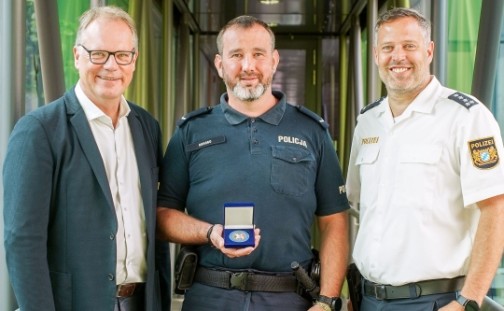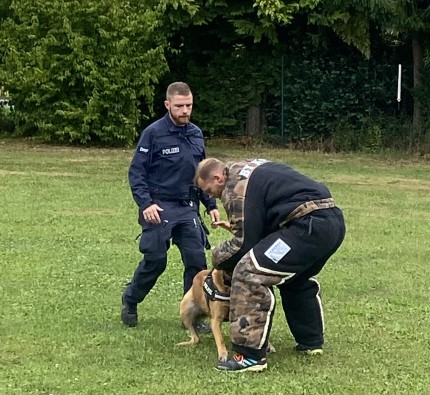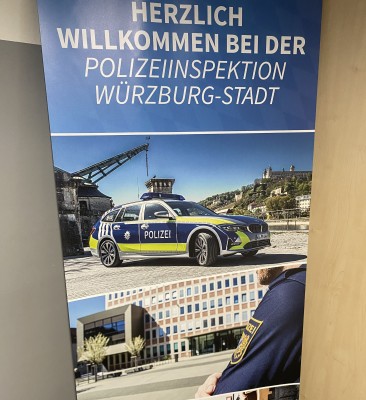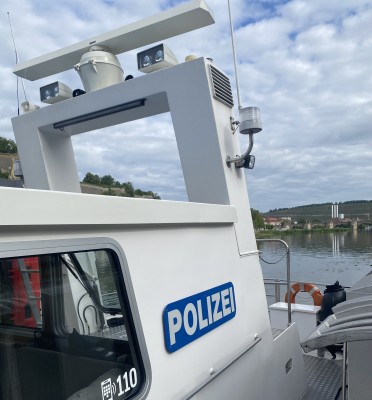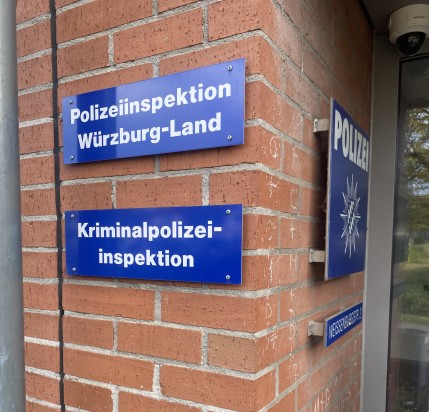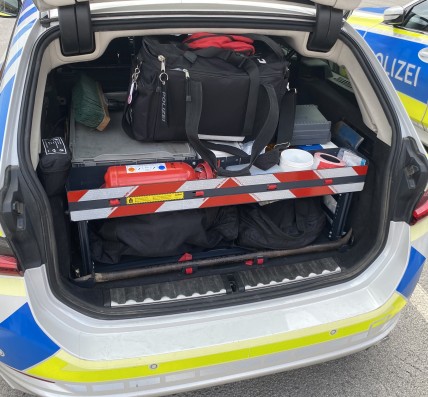Thanks to the assistance of Polish Police liaison officers, Erasmus+ student mobility enables scholarship holders to become familiar with the realities of service in local police units abroad. This year, the participants are visiting Bavaria. From 21 July to 8 August 2025, Sergeant Class II, Michał Stawkowski, a third-year student of Police Science, completed an internship in police units in the Würzburg region (Bavaria, Germany).
The stay began with an intensive introductory week, organized jointly with students of German police schools undertaking their internships in local units. The trainees visited a number of organizational divisions of the Bavarian police, including the operational command centre (Leitstelle), the water police (WSP) and the traffic police division (VPI). The programme also included a visit to a correctional facility and attendance at a court hearing, providing a broader perspective on cooperation between the police and the judiciary in Germany.
Mr Michał Stawkowski also visited the Bavarian police dog training centre. This was a unique opportunity to learn about training methods, the system for selecting dogs for service, and the process of training handlers. The visit showcased various police dog specializations, including narcotics detection, explosives detection, missing persons search, as well as intervention and defensive operations. The student was able to observe practical demonstrations of canine work, including searching rooms, vehicles and open areas, and carrying out interventions using a dog against an aggressive individual. Particularly interesting was the discussion of the process of building a bond between the handler and the dog, which is crucial for effectiveness in real-life operations.
The scholarship holder from Szczytno also learned about the principles of conducting refresher training, held regularly throughout a dog’s service life. Another highlight was the presentation of modern training equipment, including protective gear for handlers and specialist collars and harnesses tailored to different tasks.
In the following days of the internship, the student had the opportunity to actively participate in patrol duties alongside officers from local units. He became acquainted with the work of intervention teams, the operational division and the criminal investigation department (KDD). At the modern operational training centre (PE-Zentrum), he took part in training sessions on interventions involving persons with mental disorders, individuals aggressive after consuming intoxicants, and firearms training. This allowed him to familiarize himself with the training methods used in the German police. During his stay, Mr Michał Stawkowski also learned about the IT systems used by the Bavarian police in their daily work. He served alongside traffic police officers, observing the organization and tactics of road traffic control operations.
The internship in the Würzburg region’s police units provided a direct and practical insight into the organization, structure and working methods of the Bavarian police. Comparing the German policing model with the solutions applied in Poland made it possible to identify similarities and differences in the way service is performed. Of particular importance was the opportunity to jointly participate in classes and duties with German police officers and trainees. This enabled direct exchange of experiences, learning about different procedures, and testing one’s own skills against the requirements of another country. Especially valuable was the training on interventions involving persons with mental disorders and those aggressive after using intoxicants. This subject is highly relevant to the daily work of the Polish police, and the methods learned can be successfully adapted to our context. Visiting various organizational units, such as the operational command centre, the water police, the traffic division, intervention teams and criminal investigation departments, gave the student a broad view of the German police work system. It was also valuable to observe cooperation between the police, the correctional facility and the court, confirming the importance of coordination between all institutions responsible for public safety and justice.
From an organizational perspective, working with modern IT systems and access to extensive databases, which support German officers in operational and investigative activities, was significant. Such solutions greatly streamline the decision-making process and may serve as inspiration for further development of systems in Poland.
The Erasmus+ trip also had an integrative and cultural dimension. It facilitated the establishment of professional contacts that could form the basis for future international cooperation in public safety. Moreover, the stay in Würzburg provided an opportunity to learn about working conditions in another country, enhancing the flexibility and adaptability of the officer in situations requiring cross-border cooperation. The experience and observations gained will be applied in daily service and professional development, contributing to improving the quality of activities undertaken for the safety of citizens.



